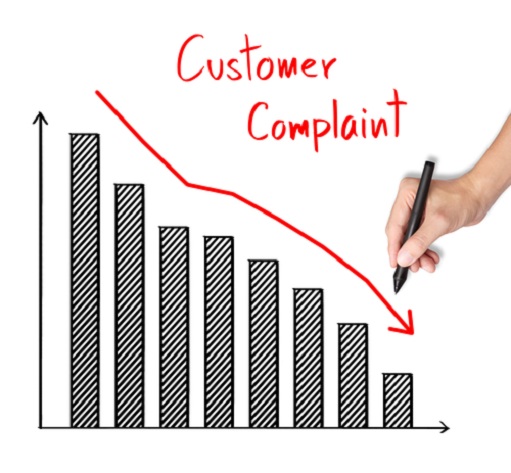
Usman Ghani (October 30, 2014)
Effectively handling customers’ complaints is one of the most important aspects for a company to consider in order to provide a better overall experience. Complaints are also an important way for gathering valuable feedback which could be used to evaluate the performance of an organization. On the customer’s part a complaint is a mere dissatisfaction made to an organization regarding the products or services, but for the organization it is an opportunity to look inwards and fix the incongruous systems.
Here are some tips that could help companies to handle complaints more effectively:
Provide an appropriate channel to receive complaints: Sometimes customers are confused as to how to register their complaints. Customers need to be clearly told about the platform through which they can make their complaints. Ideally, a dedicated phone number or email address should be provided. The company should encourage its customers to voice their concerns, since it goes to show that the company wants to receive feedback in order to improve the services.
Recording: All complaints must be recorded in a systematic manner, categorized and secured, since the information can be later used to review the performance and improve the customer service experience for the customers.
Resolution: Complaints must be assigned to a single person for resolution, so that there is no confusion as to who is responsible. A timeframe must be set for the resolution and complaint management department should follow-up with the assigned person regarding the progress. Recommended course of action should be clearly defined with no ambiguities. Any additional information available to the company must also be recorded with the complaint that could help with the resolution.
Communicating with the complainant: Once the complaint is made, the company should stay in touch with the complainant, even after the complaint has been acknowledged. Companies should issue a reference code so that customers can later follow-up without hassle. The customer must be taken into confidence and clearly informed that the company is looking into resolving the issue.
Thorough investigation: After all the relevant information has been gathered, the complaint should be meticulously investigated. All aspects should be looked into in order to draw an unbiased conclusion. If negligence on part of the company is proved, it must be acknowledged. The company should be determined to find out what has caused it so that not only an appropriate solution is reached but the issue can be avoided in future.
Response: Company response after investigation must be in line with the company policy. The settlement or response must be communicated to the customer without unnecessary delays.
Follow-up: Once the issue has been resolved, the company representative must follow-up with the customers and find out if they are satisfied with the resolution, and more importantly whether it was carried out in a timely manner. If the customer still isn’t satisfied, another complaint could be filed to start the process all over again.
If an organization manages to handle a complaint effectively, it will not only resolve the issue raised by the complainant, but also retrieve information that could lead to improvement in customer service standards, create a goodwill about the company and strengthen public confidence. According to Jim Moran Institute and Lee Resources, 70% of the customers will come back to do business with a company that managed to resolve a particular complaint, whilst 95% of the customers will be willing to give the company a second chance if their complaint is handled effectively.
On the other hand, poorly handling complaints could destroy the company’s reputation for customer service, which is why each and every complaint must be taken seriously and appropriately addressed in a timely and effective manner.

Healthcare workers are entrusted with the great responsibility of caring for people. In order to continually offer comfort and care to people, there are certain skills that healthcare professionals need to master. Of course there are the obvious ones related...
Read More
Creative thinking is one of the most important and sought after soft skills that you need to acquire in an increasingly digital landscape of 2021 and beyond. Creative thinking skills are required in many different job roles to come up...
Read More
Sales are the backbone of any business and great salespeople are an asset for the company. Some people are naturally gifted in the art of persuasive communication and negotiation skills required to convince clients and effectively sell more. However, certain...
Read More